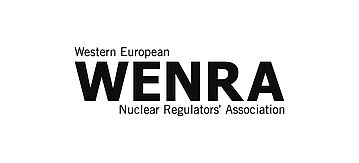WENRA

Western European safety regulators founded the WENRA advisory body at the beginning of 1999. This move was triggered by the necessity to develop a common position concerning the safety of nuclear power plants in EU applicant countries states for accession negotiations.
Of the central and eastern European countries applying for EU membership, Bulgaria, the Czech Republic, Hungary, Lithuania, Romania, the Slovak Republic and Slovenia, all had the capacity to generate nuclear power. To lend nuclear safety issues sufficient weight during the accession process, WENRA issued a report on the status of nuclear regulatory authorities and the safety of nuclear installations in EU applicant countries in 2000.
In March 2003 the objectives of the co-operation within WENRA were extended. WENRA has now become a network of nuclear safety regulators in Europe exchanging experience and discussing significant safety issues relating to the operation of nuclear installations.
Today WENRA comprises 15 EU member states that use or have used nuclear power, as well as Switzerland, the Ukraine and the United Kingdom. A further 12 states have observer status and 2 states have the so-called associate member status. Individual states are represented by the heads of nuclear regulatory bodies. Germany is represented by the head of the directorate-general RS (Nuclear Safety) in the Federal Environment Ministry (BMUV).
Objectives and Tasks
WENRA’s main objective is the promotion and further development of nuclear installation safety in member states. The European wide harmonisation of national nuclear regulations is of great importance in order to ensure a high level of safety all over Europe. National nuclear regulations of WENRA states – which include laws, ordinances and guidelines – were developed and approved mostly independent of other member states and therefore differ in terms of detail and binding force.
WENRA has three permanent technical working groups made up of experts from regulatory authorities and expert organisations dealing intensively with technical aspects.
Reactor Harmonisation Working Group (RHWG)
In 2005 the RHWG published the "Reference Levels", which specified some 300 requirements in relation to 18 safety issues that should be considered for inclusion in the national nuclear regulations of WENRA members (for example "Design basis envelope for existing reactors", "Probabilistic Safety Analysis" (PSA) and "Operational limits and conditions"). Furthermore, the RHWG develops recommendations and opinion statements on certain topics such as the safety requirements of new reactors.
Following the nuclear accident in Fukushima it was decided on the basis of the knowledge gained from that accident that Reference Levels should be expanded, with a particular focus on the impacts of nature on nuclear power plants. The revision was concluded in 2014 and presented at the 58th IAEA General Conference.
Working Group on Waste and Decommissioning (WGWD)
The Working Group on Waste and Decommissioning (WGWD) carries out similar work to the RHWG in relation to the interim storage of radioactive wastes and spent fuels, the decommissioning of nuclear installations and the final disposal of radioactive wastes and spent fuels in WENRA states. On the basis of international regulations as well as international licensing and supervisory practices, Reference Levels are being developed, published and their implementation examined in the WENRA countries.
Working Group on Research Reactors (WGRR)
The Working Group on Research Reactors (WGRR) carries out similar work to the RHWG. Originally established in 2017 as an ad-hoc working group to develop Safety Reference Levels for Research Reactors, the WGRR, after finishing its work in 2021, proposed to WENRA a 5 year plan and was turned into a permanent working group.
